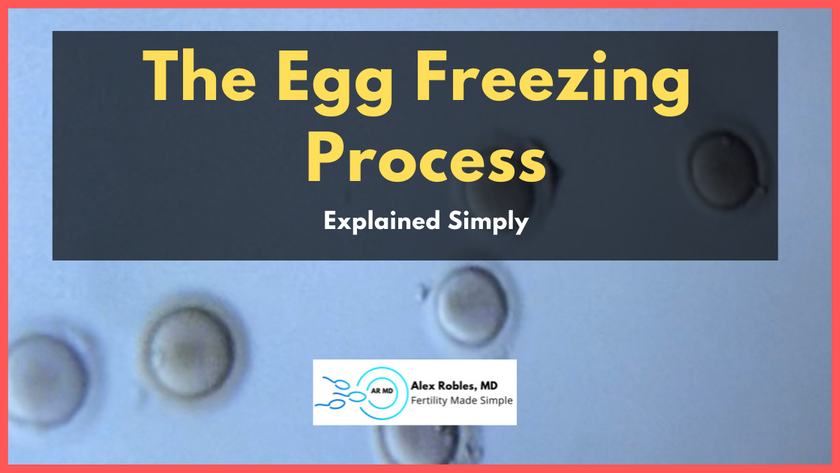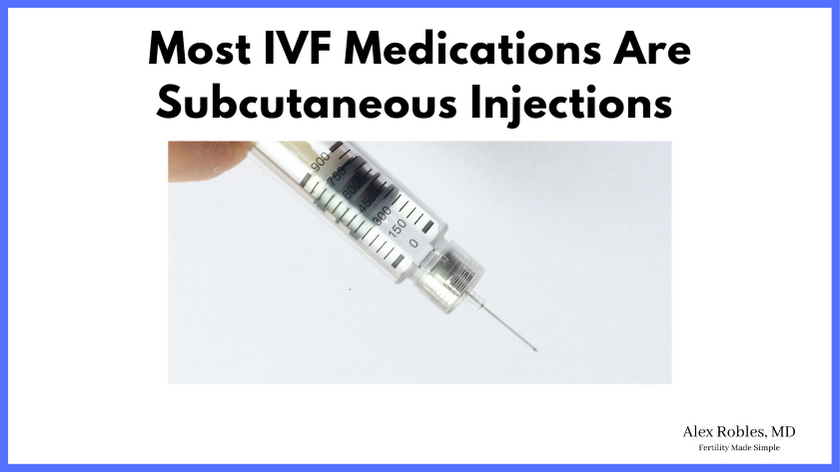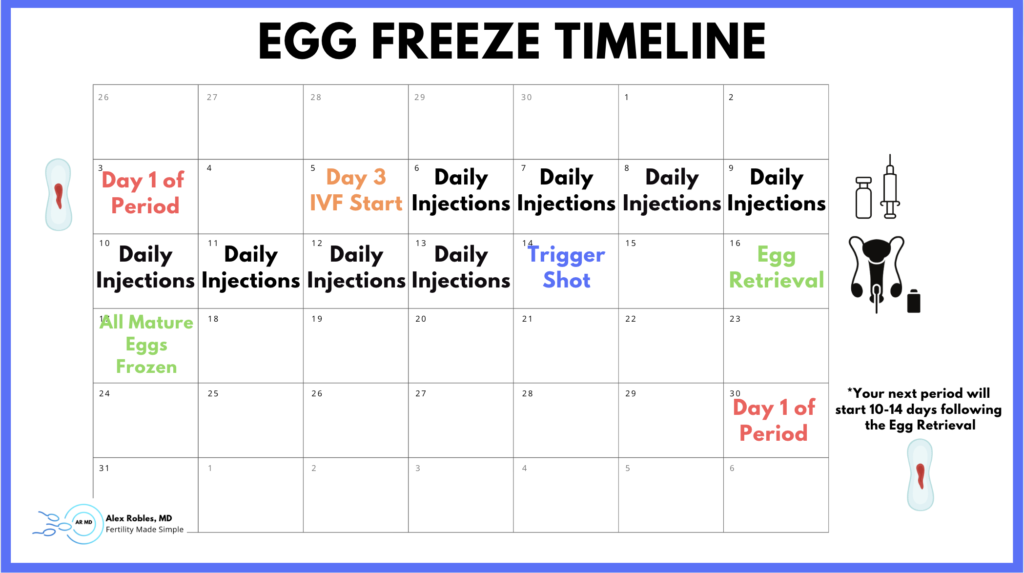Jennifer Aniston made headlines recently when she said she wished someone had told her to freeze her eggs when younger.
In her interview, Aniston opened up about her fertility journey and how she attempted multiple cycles of in vitro fertilization without success.
Unfortunately, this is a common story.
More and more people are turning to egg freezing for fertility preservation.
So, what is the egg freezing process like, and should you do it?

What Is Egg Freezing and What Are the Benefits?
Egg freezing, also known as oocyte cryopreservation, is a fertility treatment in which eggs are removed from the ovaries and frozen for future use.
The eggs can remain frozen indefinitely until a later date when the person wishes to become pregnant.
There are several reasons why someone might elect to freeze their eggs.
Who Should Consider Freezing Their Eggs?
Here are some of the most common reasons why you might consider freezing your eggs:
You’re Not Yet Ready To Have Children Or Haven’t Found The Right Partner
Egg freezing is particularly popular among persons who are not yet ready to have children but want to increase their chances of having a baby later in life. The sad truth is that fertility declines in the mid to late 30s, and it becomes increasingly difficult to conceive as you age due to the biological clock.
You Have A Family History Of Early Menopause
If you have a family history of premature menopause (i.e., menopause occurring before age 40), you may want to consider oocyte cryopreservation.
By freezing your eggs at an early age, you can preserve your reproductive potential, even if your ovaries stop functioning.
You Have A Medical Condition That May Affect Your Fertility
Unfortunately, many medical conditions can negatively impact fertility. For example, many women experience an unexpected cancer diagnosis early in life.
In these cases, egg freezing can give you the option of fertility preservation before undergoing chemotherapy or radiation therapy.
How Long Does The Entire Process Take?
An egg freezing cycle takes approximately two to three weeks from the start of your menstrual cycle to the actual egg retrieval procedure.
However, the entire process, from the initial consultation to the retrieval, can take at least one to two months.
After your consultation, your doctor order some initial tests, including a pelvic ultrasound and blood work to assess your ovarian reserve.
What Does The Egg Freezing Process Entail?
The egg-freezing process involves three main steps:
- Stimulation of Ovarian Follicles
- Egg Retrieval
- Freezing the Eggs
The Stimulation Phase
After your initial consultation and workup, the first step is stimulating your ovaries to produce multiple follicles.
We stimulate follicular growth using different hormone injections that you administer yourself.
On average, the ovarian stimulation phase takes around ten days. You will go to the office periodically during this phase for monitoring with blood tests and ultrasounds.

Once the follicles have reached a certain size, you will take a trigger shot to mature the eggs.
Approximately 36 hours later, you will undergo the egg retrieval procedure.
The Egg Retrieval Process
The egg retrieval is a quick, minimally-invasive outpatient procedure.
You will receive anesthesia for light sedation. Once asleep, a small needle is passed through the vagina and into each ovary during the procedure.
We drain the follicles and collect the fluid (which contains the eggs) in a sterile tube.
The procedure takes about 20 minutes, and you go home the same day.
The Freezing Process
Once the eggs are retrieved, the embryologists assess each egg for maturity.
Only the mature eggs are frozen using a process called vitrification, a quick-freezing method that helps minimize damage to the egg.
After the eggs are frozen, they are stored in liquid nitrogen until you are ready to use them.
Sample Egg Freezing Timeline
Here is a sample timeline of the process.
Month 1
- Prep Work: The initial consultation with your reproductive endocrinologist along with the initial work-up
Month 2
- Day 1: The first day of your menstrual cycle
- Days 2-3: A baseline ultrasound and blood work to assess if you are ready to start the injectable medications
- Days 4-11: Regular ultrasounds and blood tests to monitor your progress, along with daily injections of medication
- Day 12: Trigger shot for egg maturation
- Day 14: The egg retrieval procedure and freezing of all mature eggs

How Long Can The Eggs Be Frozen?
Eggs can remain frozen in liquid nitrogen indefinitely.
Once you are ready to use them, the eggs will need to undergo in vitro fertilization (IVF) after thawing.
In short, we fertilize the eggs with the male partner’s sperm and grow the embryos in the IVF lab.
Any resulting embryos can also be frozen before transferring back into your uterus.
Is The Egg Freezing Process Painful?
The stimulation phase is usually well tolerated.
You might experience side effects such as bloating and discomfort from the enlarged ovaries, but these typically resolve after the egg retrieval procedure.
The egg retrieval is minimally invasive and done under anesthesia, so you will not feel any pain during the procedure.
However, you might experience some cramping and bloat afterward.
What Is The Recovery Process Like?
Most patients feel back to their normal selves within a day or two after the egg retrieval.
However, you will need to refrain from exercise and strenuous activity for a few days.
Your doctor will give you specific instructions on how best to care for yourself during your recovery.
What Are The Success Rates Of Egg Freezing?
The success rates of egg freezing depend on several factors, such as the person’s age at the time of freezing and the number of eggs frozen.
For example, a 35-year-old patient who freezes 12 eggs will have approximately a 75% chance of having a baby after thawing. A 40-year-old patient who freezes the same number of eggs will have roughly a 30% chance.
You can use this calculator to predict your chances of a successful pregnancy and live birth based on the number of eggs you have frozen.
How Do I Know How Many Eggs I Will Get?
There is no way to predict with certainty how many eggs we will retrieve at the start of a cycle.
However, your anti-müllerian hormone (AMH) level correlates with how well you will respond to the stimulation. Younger patients tend to have higher AMH levels and are more likely to get a higher egg count than someone with a lower AMH.
The Cost of Egg Freezing in 2022
The cost of egg freezing can vary depending on the fertility clinic and the number of medications you need for the stimulation.
On average, the total cost of one egg-freezing cycle (including medication, monitoring, and the procedure) is between $12,000 and $15,000. In addition, there is a yearly storage fee to keep the eggs frozen.
Unfortunately, many insurance companies do not cover elective egg freezing.
What Are The Risks Associated With Egg Freezing?
As with all medical procedures, there are some risks with egg freezing.
They include:
Ovarian hyperstimulation syndrome (OHSS):
OHSS is a condition that occurs when the ovaries are overstimulated. Common symptoms include abdominal pain, bloating, nausea, vomiting, and occasionally shortness of breath. OHSS is usually mild, but in rare cases, it can be severe and require hospitalization.
Egg retrieval risks:
There is a small risk of infection, bleeding, or damage to the bowel or bladder during the egg retrieval procedure. These risks are typically less than 1%.
Unexpected outcomes:
In some cases, the egg retrieval procedure may need to be canceled due to insufficient follicle development. Alternatively, we may retrieve fewer eggs than expected, or the maturity of the eggs may be lower than expected.
You may never use them:
Many patients never need to use their frozen eggs. Once you are ready to have children, we recommend trying on your own first. You should consider using your frozen eggs if you do not get pregnant after 6-12 months of trying to conceive.
What Is The Best Age To Freeze Your Eggs?
According to the latest research, the best age to freeze your eggs is between the ages of 32 to 36. The earlier you freeze your eggs, the better.
With that said, success rates can still be high for patients who freeze their eggs before 39.
Should You Freeze Your Eggs?
There is no right or wrong answer regarding whether or not you should freeze your eggs, and it depends on your circumstances and what you want for your future.
If you are considering egg freezing, it is essential to speak with a fertility specialist to learn if you are a good candidate or whether it is right for you.
Related Posts:
- Follicles: What Are They and What is A Good Number For IVF?
- The Egg Retrieval Day: What To Expect and How To Prepare For It
- Embryo Development Statistics: An Honest Explanation
Make An Appointment With Dr. Robles To Discuss Your Fertility Options Today!

Alex Robles, MD
Dr. Alex Robles is a Spanish-speaking Latino-American Reproductive Endocrinologist and Infertility specialist in New York City, and a board-certified OBGYN. He has a special interest in health, lifestyle, & nutrition. Make an appointment with Dr. Robles to discuss your fertility options today!
References:
- Chronopoulou E, Raperport C, Sfakianakis A, Srivastava G, Homburg R. Elective oocyte cryopreservation for age-related fertility decline. J Assist Reprod Genet. 2021 May;38(5):1177-1186. doi: 10.1007/s10815-021-02072-w. Epub 2021 Feb 19. PMID: 33608838; PMCID: PMC7894970.
- Bakkensen JB, Flannagan KSJ, Mumford SL, Hutchinson AP, Cheung EO, Moreno PI, Jordan N, Feinberg EC, Goldman KN. A SART data cost-effectiveness analysis of planned oocyte cryopreservation versus in vitro fertilization with preimplantation genetic testing for aneuploidy considering ideal family size. Fertil Steril. 2022 Nov;118(5):875-884. doi: 10.1016/j.fertnstert.2022.07.022. Epub 2022 Sep 26. PMID: 36175208; PMCID: PMC9613595.
